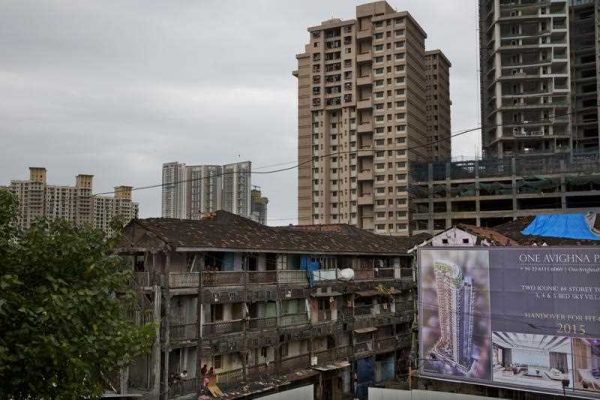By most estimates the level of urbanisation will reach 50 per cent in India by 2039. To manage this change, India would have to spend US$1.2 trillion in its urban areas over the next 20 years.
During his recent visit to Japan, India’s Prime Minister Narendra Modi signed a memorandum of understanding with his counterpart Shinzo Abe, to develop the city of Varanasi into a ‘smart city’ with help from Kyoto. The Union Budget has earmarked Rs 7,060 crore (US$11.5 billion) for the 2014–2015 financial year to develop 100 smart cities in the country. The Modi government seems to perceive the ‘100 smart cities’ scheme as a massive greenfield project that is set to change the Indian landscape.
But, surprisingly, there is neither an internationally accepted definition of a ‘smart city’, nor does India have any national policy on urbanisation in the first place. The scholarly definition of smart cities is cities where ‘investments in human and social capital and traditional (transport) and modern (ICT) communication infrastructure fuel sustainable economic growth and a high quality of life, with a wise management of natural resources, through participatory governance’.
Smart cities help promote sustainability, resource management, energy efficiency and participatory engagement. Among the 135 to 143 smart cities identified globally by IESE and Stanford University, Japanese cities like Tokyo, Osaka, Yokohama, Kawasaki, Kitakyushu and Toyama are pioneers. They lead the world in promoting solar energy and smart waste sector management including segregation, load and emission reductions, smart grids with community and household energy management systems in place, and e-mobility that prioritises light rapid transit and electronic vehicles. Indian cities could learn immensely from them.
But, unlike smart chips, cards or phones, smart cities can neither be imported nor transplanted — they need to be adapted to the local context and thus face several ideological, technical, societal, financial and governance related challenges.
Many Indians still live in villages and most of the urban population faces poverty, homelessness, resource scarcity and a lack of adequate sanitation. Is building IT savvy cities in this context ethically justified?
The 100 smart cities project must not detract from the urgent need to make India’s top 100 cities liveable. Hi-tech and posh greenfield projects should not be a costly alternative to developing basic infrastructure and fostering urban-renewal in India’s degenerating cities. From a social perspective, smart cities must be inclusive, not gated communities for the uber rich. If the state overlooks the existing city’s situation and privileges new enclaves, the urban fabric will be torn into two unequal parts.
Financially, Rs 70.6 crore (US$110 million) per smart city is piecemeal. But the Indian government needs to ensure that the smart cities initiative is self-sustaining without invoking controversial land acquisition processes, like special economic zones (SEZ), lest the project turn into another land-grabbing real estate venture that speculates higher returns while running over time.
The Modi government needs to clarify how it perceives ‘smart cities’. Is a smart city merely a functional city or would it have a specific constitutional mandate like the SEZs? Will smart cities be developed by strengthening the existing powers of Urban Local Bodies (ULBs), as envisioned in the 74th Constitutional Amendment Act in 1992? Separate allocation by the Finance Commission to ULBs could potentially boost not just smart cities but also the entire third tier of governance.
Also, would the 100 smart cities project be executed like a program, as individual projects or through a special purpose body? The Modi government needs to determine how the private sector will be involved in the creation of smart cities — will this be done on a technical and consultative basis or will it be a free lunch for all? The above issues can be sufficiently addressed if the 100 smart cities initiative is founded on sustainability, metrics, adaptiveness, reporting and technology for inclusiveness (a new acronym for SMART).
From a technical and a financial perspective, smart cities do not pose much of an issue. Throughout the world, smart cities show that innovations in transport and the power sector are low-hanging fruits. The biggest challenge is to internalise high-tech solutions within the existing social ethos, urban planning and governance of the country. This could be achieved if the 100 smart cities project focuses on sustainable urbanisation, good governance, transparent metrics and reporting and, importantly, keeping poor people in the spotlight.
Mahendra Sethi is an urban environment expert and editor at National Institute of Urban Affairs, New Delhi and visiting fellow at the Institute for the Advanced Study of Sustainability, United Nations University, Tokyo.


Smart cities should be self sustainable with greenary and space for both rich and low income people. There should emphasis on scope for animals ( safe ones to be free and contributing to the landscape. Cities should also target tourist with tourism amenities
Very Nice article, very well wirtten and keenly describing ground reality in context to facinating solution “smart city” for a contry of villages : india.